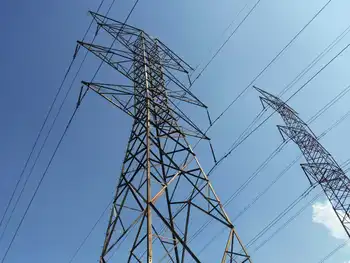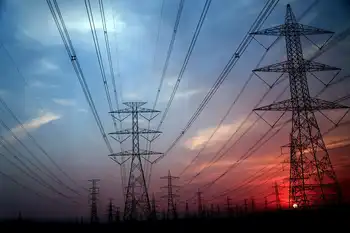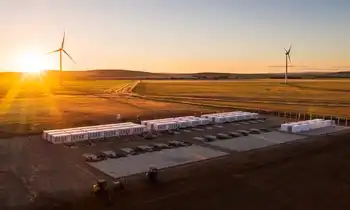Utility to Utah: Raise rates or lose electricity
UTAH - Rocky Mountain Power is giving Utahns an ultimatum: Give us the money we want or we won't give you the electricity you need.
The company that three weeks ago received permission from state utility regulators to raise its rates by $36.1 million, or 2.6 percent, now says that isn't nearly enough. And if it doesn't get more, Utah must face the consequences.
"This isn't a threat," Rocky Mountain Power spokesman Dave Eskelsen said. "When the laws of man go against the laws of physics, the laws of physics always win. And generating electricity is all about physics."
Rocky Mountain Power expressed its frustration with the Utah Public Service Commission's decision to give it $36.1 million instead of the $74.4 million it demanded. The company said it intends to file a challenge to the commission's order.
"The cost of providing for increased electric consumption by existing customers and the cost of providing service to new customers has exceeded the revenue the company receives," Richard Walje, president of Rocky Mountain Power, said in announcing what was termed a change in the way the company services its Utah customers.
The company says as a result of the PSC's action, it no longer will be able to operate its system as it has in the past.
Rocky Mountain Power said that beginning September 15 when its customers' power goes out it isn't going to authorize any of its employees to work overtime to get the electricity back up. It also is going to cut back on the maintenance of its system and will implement a hiring freeze for any positions that involve serving customers.
Michele Beck, director of the state's Committee of Consumer Services, said at first glance it appears that Rocky Mountain Power is launching an attack against Utah consumers.
"I'm not sure you can take it (the company's statement) any other way," she said. "They obviously appear upset by what I consider the proper oversight of the company by Utah's utility regulators and consumer advocates."
The Committee of Consumer Services, which serves as the voice for consumers and small business owners in utility rate cases, had argued that Rocky Mountain Power only deserved an $8.5 million rate increase.
Rocky Mountain Power's warnings led Utah Senate President John Valentine, R-Orem, to express sympathy and appreciation for the utility.
"I applaud Rocky Mountain Power for its efforts to take all the other steps first before they start looking at curtailing service," said Valentine, who was attending the Republican National Convention in Minnesota. "Unfortunately, there is no free lunch. And if the revenues are not enough to provide the level of services that are being demanded by our growing market, the options that Rocky Mountain Power have are limited."
Valentine said he hopes the PSC will "carefully" review the utility's appeal. "If you cannot provide the service, then the PSC needs to recognize that the cost of providing (electricity) has to be included within rates."
But Roger Ball, a longtime utility watchdog and former director of the Utah Committee of Consumer Services, said Walje's statement that the company isn't generating enough revenue to cover its costs is nothing more than an attempt by the utility to get legislators to strong-arm the PSC.
When Rocky Mountain Power filed its rate case in December, Ball said the company reported that if its current rates remained unchanged from July 2008 to June 2009 that it would earn 5.8 percent for its shareholders.
"And that doesn't even take into consideration the 2.6 percent increase in revenue they were just given," said Ball, who now heads a consumer group known as the Utah Ratepayers Alliance. "So for Rocky Mountain Power to say, as they are now doing, that their revenues are not covering their costs is a blatant lie."
Rocky Mountain Power spokesman Dave Eskelsen argued as the result of the PSC's action the utility "is left with some pretty bad choices."
And the company indicated that it intends to work closely with state legislators and if necessary will ask lawmakers to force Utahns to participate in company-sponsored programs aimed at reducing the amount of electricity its customers use.
Related News

Coalition pursues extra $7.25B for DOE nuclear cleanup, job creation
WASHINGTON - A bloc of local governments and nuclear industry, labor and community groups are pressing Congress to provide a one-time multibillion-dollar boost to the U.S. Department of Energy Office of Environmental Management, the remediation-focused Savannah River Site landlord.
The organizations and officials -- including Citizens For Nuclear Technology Awareness Executive Director Jim Marra and Savannah River Site Community Reuse Organization President and CEO Rick McLeod -- sent a letter Friday to U.S. House and Senate leadership "strongly" supporting a $7.25 billion funding injection, arguing it "will help reignite the national economy," help revive small businesses and create thousands of new…




